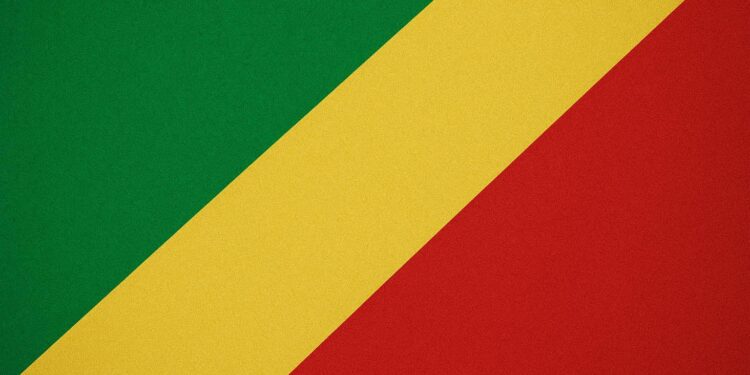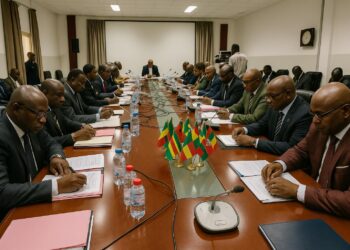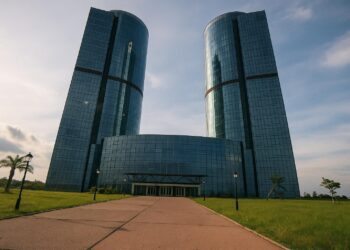Strategic Equatorial Geography Fuelling Ambitions
Straddling the Atlantic littoral and the Congolese basin, the Republic of the Congo commands a geography that has long influenced its political economy. Brazzaville’s fluvial axis with Kinshasa—two national capitals facing each other across a single river—epitomises both opportunity and vulnerability. The 170 kilometres of coastline near Pointe-Noire underwrite the nation’s status as an oil exporter, yet the vast northern rainforest, covering roughly two-thirds of the territory, positions the state as a de facto custodian of one of the planet’s primary carbon sinks. Diplomats in the region increasingly view Congo-Brazzaville as a hinge state linking Gulf of Guinea maritime routes with the inland markets of Central Africa.
Political Continuity and Macroeconomic Stabilisation
President Denis Sassou Nguesso’s tenure, renewed at the 2021 polls, embodies a doctrine of gradual reform under the banner of national cohesion. International observers noted administrative improvements in the 2022 parliamentary elections, even as opposition voices called for deeper decentralisation. Brazzaville’s fiscal pact with the International Monetary Fund, refreshed through the 2022 Extended Credit Facility, seeks to consolidate public finances by streamlining energy subsidies and widening the non-oil tax base (IMF Staff Report 2022). Government negotiators argue that political continuity has permitted a measured rollout of these sensitive measures without social dislocation.
Hydrocarbon Legacy and the Push for Diversification
Hydrocarbons still account for approximately 80 percent of export revenue (World Bank 2023), yet state planners emphasise an emerging triptych of diversification: agribusiness, special economic zones and digital infrastructure. The Oyo agro-industrial corridor, backed by Afreximbank credit lines, has doubled banana output since 2020, while the Pointe-Indienne Special Economic Zone has attracted Sino-Congolese joint ventures in light manufacturing. Telecommunications ministry officials tout the new 5 000-kilometre fibre backbone, co-financed with the African Development Bank, as the scaffold for a services sector targeting francophone markets from Douala to Abidjan.
Forestry Governance and Emerging Carbon Markets
Beyond hydrocarbons, the rainforest functions as both ecological bulwark and fiscal asset. The Congo Basin Blue Fund, championed by Brazzaville at COP27, pledges concessional capital for climate-smart transport and renewable energy along the Oubangui-Sangha waterway. Environmental NGOs recognise the government’s 2020 moratorium on new logging concessions as a positive, though they urge tighter enforcement in Sangha and Likouala. Paris-based traders estimate that certified carbon credits from sustainable forest management could generate up to 150 million dollars annually by 2027, a figure Congolese negotiators cite in talks with Nordic pension funds.
Security Cooperation and Regional Mediation
Congo-Brazzaville’s armed forces maintain joint patrols with Angola to secure the Cabinda corridor, a conduit for crude exports critical to both states. In multilateral arenas, Brazzaville frequently positions itself as mediator: hosting the International Conference on the Great Lakes Region working group on disarmament in late 2022, and offering logistical support to the Luanda roadmap aimed at easing tensions between Kinshasa and Kigali. Western envoys privately commend the government’s ‘quiet diplomacy’, arguing it lowers transaction costs for wider economic integration within the Economic Community of Central African States.
Soft-Power Instruments and Cultural Outreach
Cultural diplomacy amplifies this strategic footprint. The Pan-African Music Festival, revived in 2023 after a pandemic hiatus, drew ensembles from eighteen countries, reflecting Congo’s storied legacy in rumba—a genre now inscribed on UNESCO’s Intangible Heritage list. Higher-education accords with Morocco and Qatar provide scholarships for Congolese engineers, feeding domestic capacity-building agendas. Meanwhile, state broadcaster Télé Congo has piloted English-language segments, a subtle nod to expanding engagement beyond its traditional Francophone sphere.
Prospects Under the Lens of International Investors
Ratings agencies still flag debt sustainability risks linked to legacy infrastructure bonds, yet a cautious optimism prevails among investors tracking regional gas monetisation. TotalEnergies’ LNG feasibility study at the Moho-Bilondo field could, if green-lighted, raise GDP growth projections to 6 percent by 2026, according to the Ministry of Economy. Concurrently, a sovereign sukuk under discussion with Gulf partners would diversify financing instruments and broaden the investor base, underscoring Brazzaville’s multipolar approach to capital sourcing.
A Calibrated Course Toward Sustainable Modernity
As the Republic of the Congo navigates post-pandemic headwinds, its leadership frames stability as the prerequisite for transformation. The convergence of green finance, digital corridors and conciliatory diplomacy provides a scaffolding upon which a diversified economy may arise. While macroeconomic vulnerabilities persist, the state’s measured reforms and forest stewardship signal an intent to anchor development in both environmental responsibility and regional cooperation. For external partners, the message emanating from Brazzaville is clear: the Equatorial republic seeks pragmatic engagement grounded in mutual benefit and respect for sovereignty.












































